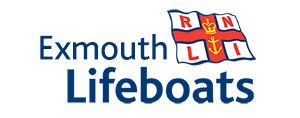Exmouth RNLI’s lifeboat medical adviser, Dr. Peter Aitken has been chosen as part of an RNLI team providing safety and medical cover during the Olympic sailing events. The competitive sailing events take place between 29 July and 11 August at Weymouth and Portland.
The RNLI has been asked by the London Organising Committee of the Olympic and Paralympic Games (LOCOG) to provide additional services outside the charity’s usual operational remit. This summer sees Exmothians Stevie Morrison and Ben Rhodes taking part in their second Olympic games and includes Ben Ainslie’s attempt to win a fourth Olympic gold medal.
Lifeboat crew from around the UK and Ireland have volunteered to be part of the safety cover. Volunteers will be operating three Atlantic 75 inshore lifeboats each with three crew members. The requirements needed for the lifeboat medical advisers taking part are to be crew competent and commit to working seven days of 12 hour shifts.
Dr Aitken, who completed RNLI marine safety and survival together with crew training at the Lifeboat College in 2011, is a classic powerboat enthusiast who started sailing as a teenager in the West of Scotland.
Dr. Aitken and his wife, Dr. Jane Aitken have been Exmouth RNLI’s lifeboat medical advisers for two years. Jane is an Exmouth GP, Peter a former GP and is now a consultant in psychological medicine at the Royal Devon and Exeter Hospital, Exeter. Speaking of their volunteer roles, Peter said;
‘Lifeboat medical advisers are volunteer doctors whose primary job is to look after the crew. We perform crew medicals and link with the health service if boat or shore crew need help. We also spend as much time going to sea on exercise as we can, so we can understand the crew’s working environment, pressures and the conditions under which they work. Being involved in and around the station lets the crew get to know and trust us. That makes our job very much easier when we have to look after the crew when they are dealing with difficult and distressing shouts.’

